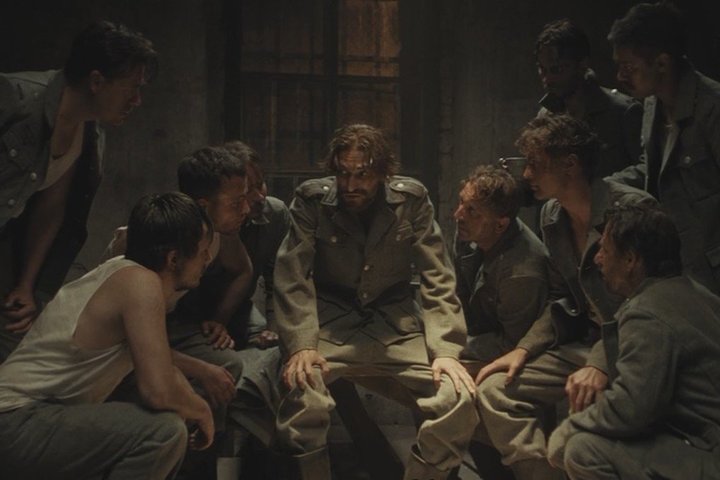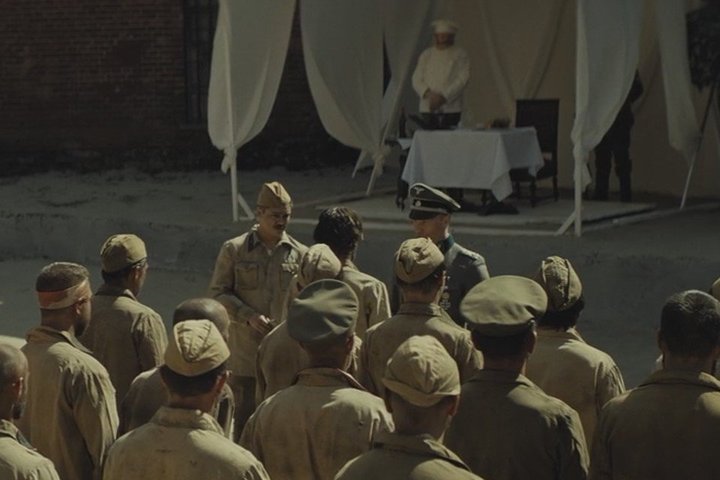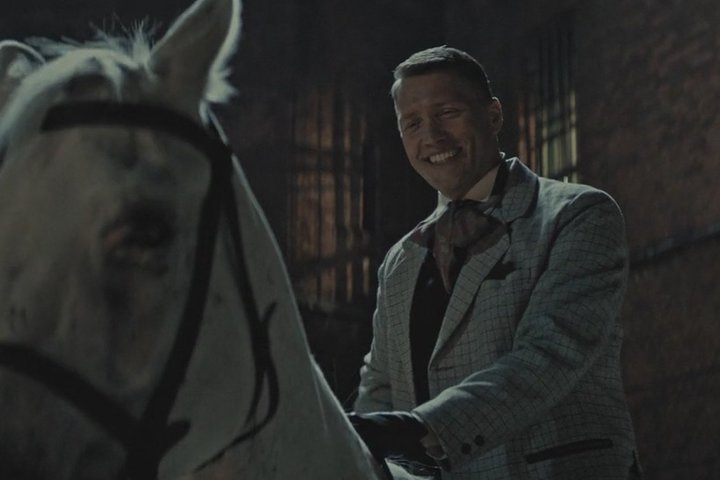A poet talking to the Standartenfuhrer about the genesis of Tatars and the eternal
The Kara Urman film about Musa Jalil has been presented in Kazan

The film Kara Urman (The Black Forest) about the feat of Musa Jalil and his associates, about the Moabit prison, poetry, and about the Tatars, has been presented to the general public. The film was screened to the republican intelligentsia on September 2 at the Opera and Ballet Theatre. The screening was attended by the rais of Tatarstan, Rustam Minnikhanov, and the state councilor of the Republic of Tatarstan, Mintimer Shaimiev. Obviously, such a large-scale presentation is an invitation to a discussion. Read the details in the material of Realnoe Vremya.
Gumer is life. Umet is hope
Director Radik Kudoyarov is from Ufa, he studied at the History Faculty of the Bashkir State University, he also mastered TV management at the University of California. In the world of cinema, he is known as a documentarian, for example, back in 2005 Kudoyarov filmed Nuremberg. The Last Battle.
The Kara Urman's narrative begins with a scene of the execution of 11 Nazi criminals. Its character, having made friends with Americans, hides in the bowels of the scaffold because he wants to find the executioner Johann Rhinehart, who executed the Jalilovites. But he, as it turns out later, managed to avoid this job.

In the interviews that Kudoyarov gave this year, he points out that the texture of the film is documentary. He also says that the film was inspired by Homer and Goethe. At the same time, as one of the viewers shared after the screening, all together it looked like a fantasy on a given topic. And another noted that he had learned a lot about the childhood of fascist criminals.
Office conversations
In the Soviet Union, Leonid Kvinikhidze made the film Moabite Notebook about Jalil in 1968. To Kudoyarov's credit, he raises an important topic that is ignored in this film — Idel-Ural Legion, which consisted of representatives of the Volga peoples. Thus, the Wehrmacht tried to solve the problem of a shortage of soldiers, promising the prisoners a comfortable service. The film mentions the story of the 825th battalion, which completely defected to the Soviet partisans before the first battle. After that, the other battalions did not participate in the fightings.
Kurmashev, Jalil and the others contribute to this, under the guise of touring (reading poetry and singing Kara Urman in chorus), they conduct underground work — in particular, they print leaflets.
An equally important character in the film is the head of the prison, Standartenfuhrer Rudolf Fleischmann (Pavel Kharlanchuk). He lives well: he rides horses with his wife, dines under the supervision of a cook. But he grabs a weapon at the slightest provocation. With Gumerov, he has lengthy conversations in a study equipped with a cell with bars.
In particular, Fleischmann wants to know who the Tatars are. However, we do not get any clear answer. But what is this answer for? Are there people in Russia who would really be surprised by an unexpected answer to this question?
The film was shot mainly in Belarus, in 21 days. Moreover, the performer of the role of the poet, Tinchurin theatre actor Zulfat Zakirov, was first assigned to another role. By the way, in addition to him, young artists of the Kariev Theatre, Insaf Khalautdinov and Airat Shams, were noticed on the part of Tatarstan.
The thin and plastic Zakirov and Harlanchuk make up a pair that evokes many associations, which the director clearly hoped for. First of all, of course, it's Jesus and Pontius Pilate. The second one asks tricky questions, the first one gives difficult answers.

In particular, Zakirov's character tells the prison governor that his ancestors were sent to Tartar, but they returned from there: “We are who we are, and I hope we will not be different, no matter what trials we face in the future and no matter what anyone calls us.”
In addition, the Standartenfuhrer asks the poet about God, and he replies that he believes in man. And he says this about his people: there are seven million of us and we are all sitting in the same cell.
“A little pretentious...” Fleischmann remarks, as if breaking the fourth wall.
In many ways, this approach makes the painting related to the biographical canvases of the 1950s from the USSR.
We need a film about the Kurmashevtsy
The director does not show the execution of the Jalilovites as documentarily as the hanging of the Nazis — this is not a performance, but an everyday horror. However, it is already known that Kudoyarov is now thinking about a documentary about Jalil. Perhaps, it will not turn out to be so entertaining and complex — but the film about the poet and his cellmates is clearly designed to be shown to a mass audience, no? We can confidently say that thanks to the professional voice acting and beautiful scenery, we learned a lot in this film about the life of the Standartenfuhrer, his childhood injuries and cruelty.
When will someone make a feature film about 11 heroes? Their names are listed at the end:
Gainan Kurmashev, Musa Jalil, Abdullah Alish, Fuat Saifulmulyukov, Fuat Bulatov, Garif Shabaev, Akhmet Simaev, Abdulla Battalov, Zinnat Khasanov, Akhat Atnashev, Salim Bukharov.
These are not faceless characters against the background of guards and bosses, these are people who realised that they would not be able to return to their homeland, and gave their lives without betraying their own. Let's talk more about heroes, and not study the psychological portraits of villains.